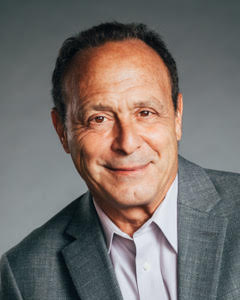A core career mistake women can easily correct is that of ignoring blind spots about organizational politics, and overlooking common behavioral differences between males and females that often lead to unfair corporate “buzz” and interpretations that impact credibility. Sometimes blocking, negative perceptions are the outgrowth of mere language conventions, which we’ll cover in my next blog. Other times, women may want to adjust other normal habits and make conscious decisions to alter certain behaviors in order to curb some of the labels that the “buzz-ards” might be attaching to their reputations. (Or not, but the key is to at least consciously decide rather than be “on automatic pilot.”). As I stressed in my last blog previewing Politics Pitfalls for Women, we don’t like to make generalizations because they are based partially upon sex-role stereotypes about women and men that are less true than decades ago so, where appropriate, take the following trends with a “grain of salt.”
Avoiding Politics & Power
 Research suggests that women define “power” differently (power with) than men (power over), and therefore may be less likely to throw their hats into the political arena. Women may under-estimate the dynamics of corporate politics and are often less comfortable dealing with them. This becomes a block since, like it or not, in many companies women have to work harder than men to climb the ladder, due to the cliché (but very real) “glass ceiling.” A few years back, FORTUNE Magazine published an entire section on such attitudinal differences within women executive ranks, urging a reframing of “power” to be more conducive to more female leaders embracing position power rather than suffering tremendous ambivalence.
Research suggests that women define “power” differently (power with) than men (power over), and therefore may be less likely to throw their hats into the political arena. Women may under-estimate the dynamics of corporate politics and are often less comfortable dealing with them. This becomes a block since, like it or not, in many companies women have to work harder than men to climb the ladder, due to the cliché (but very real) “glass ceiling.” A few years back, FORTUNE Magazine published an entire section on such attitudinal differences within women executive ranks, urging a reframing of “power” to be more conducive to more female leaders embracing position power rather than suffering tremendous ambivalence.
It’s no accident that Citibank, Deutsche Bank, Credit Suisse, UBS, Goldman Sachs and other enterprises have asked Brandon Partners to address women’s networks about Organizational Savvy, and that some leadership consulting firms specialize in helping women executives advance, such as Jupiter Consulting Group and WOMEN Unlimited (The Women’s Organization for Mentoring, Education, and Networking). When we conduct workshops around the world, we help women leaders to identify various Political Styles operating in organizations. A key difference is how the major styles define “power,” and this power definition discrepancy is true of women versus men, with men associating more comfortably with hierarchical, traditional position power “over,” and women preferring power “with” postures to achieve substance power of work well done–– believing that true power resides in the work itself. Further, the famous Machiavellian question, “would you rather be feared or loved,” is far less likely to be answered with “fear” by women. More men than women might slip into preferring the power-perverted version of the Golden Rule: “He who has the gold rules!”
If you are a woman in large organization, the lesson learned is to ask yourself whether you are being marginalized by your own ambivalence or rejection of position power. If so, consider learning about how you can adopt a hierarchical definition of power and still retain the integrity, relationships, and values you cherish. That’s true ethical Organizational Savvy or Political Savvy.
Letting Emotions Rule
An obvious stereotype is that women are more emotional. The problem is again what the “buzzards” do with their interpretations of such emotional behavior. Whereas emotional reactions and aggressive behavior are interpreted as “passion” or “positive power” in a male, women run greater risk of having more negative labels attached to similar behaviors exhibited by male counterparts. You can explore the dynamic of how reputations and perceptions start to circulate in a very incident-driven fashion by completing our Organizational Savvy Self-Assessment’s survey questions, paying special attention to the recommendations under Knowing Your Corporate Buzz. You may have freedom and latitude for emotional behavior as a woman (particularly in the financial services or securities industry where you may be in the minority), so work consciously to become aware of your emotional triggers.
 We often work with both women and men to better manage any feelings of resentment or indignation they may carry about inequities or unfair labels. Here, our Assessment‘s and book’s section on Savvy Attitudes can assist you in developing mental coping strategies. Take some time occasionally to systematically re-train your own counter-productive self-statements about politics, power, unfair gender-based norms, ego-oriented colleagues or bosses, or predatory behavior. Use Self-Talk skills to re-program your thought patterns (“I owe it to myself to get credit for this project” instead of thinking, “I shouldn’t brag”). Work to consciously re-frame any negative view of “politics” or “playing the game” into viewing these dynamics simply as an avenue to increased impact and influence. Sell yourself on the notion of positive power as a way to achieve great things for your enterprise. If you feel intimidated by the political influence arena, mentally visualize yourself successfully advancing on the corporate ladder without selling out. Catch yourself over-reacting if others attack or undermine you, since you don’t want to have a trigger response that people spread around because of one off-balance day! “Buzz-ards” have a way of unfairly imprisoning you in their frozen perceptions of you and labeling you with “buzz” that sticks and reinforces unfair stereotypes. Don’t help them do so!
We often work with both women and men to better manage any feelings of resentment or indignation they may carry about inequities or unfair labels. Here, our Assessment‘s and book’s section on Savvy Attitudes can assist you in developing mental coping strategies. Take some time occasionally to systematically re-train your own counter-productive self-statements about politics, power, unfair gender-based norms, ego-oriented colleagues or bosses, or predatory behavior. Use Self-Talk skills to re-program your thought patterns (“I owe it to myself to get credit for this project” instead of thinking, “I shouldn’t brag”). Work to consciously re-frame any negative view of “politics” or “playing the game” into viewing these dynamics simply as an avenue to increased impact and influence. Sell yourself on the notion of positive power as a way to achieve great things for your enterprise. If you feel intimidated by the political influence arena, mentally visualize yourself successfully advancing on the corporate ladder without selling out. Catch yourself over-reacting if others attack or undermine you, since you don’t want to have a trigger response that people spread around because of one off-balance day! “Buzz-ards” have a way of unfairly imprisoning you in their frozen perceptions of you and labeling you with “buzz” that sticks and reinforces unfair stereotypes. Don’t help them do so!
Disclaimer and Preview
Again, I’m aware of how these cautions could ring of passé’ or outdated generalizations, but the simple fact is that we hear stories in many workshops, with nearly every coaching client that there is truth in these trends and patterns. Beyond the behavioral pitfalls covered in this blog, there are special language patterns that the next Politics Pitfalls for Women blog will address. I hope you’re finding these reminders helpful. If they seem obvious, at least they’ll reinforce of what you already may have mastered. After all, my definition of “professionals” are those who excel and are good at what they do, they constantly strive to become even better, and they know exactly what they do that makes them so good so that they can teach others. You may find these pointers a validation of how you operate, so that you can replicate it, as well as coach or mentor peers and direct reports on these political landmines. You’ll learn more blocking behaviors in my next two entries. Thanks for reading!

Rick Brandon is a thirty-year veteran in communication skills development. He provides corporate and public sector training, instructor certification, keynote presentations, executive coaching, and applied behavioral sciences consulting to enhance performance and organizational results.
